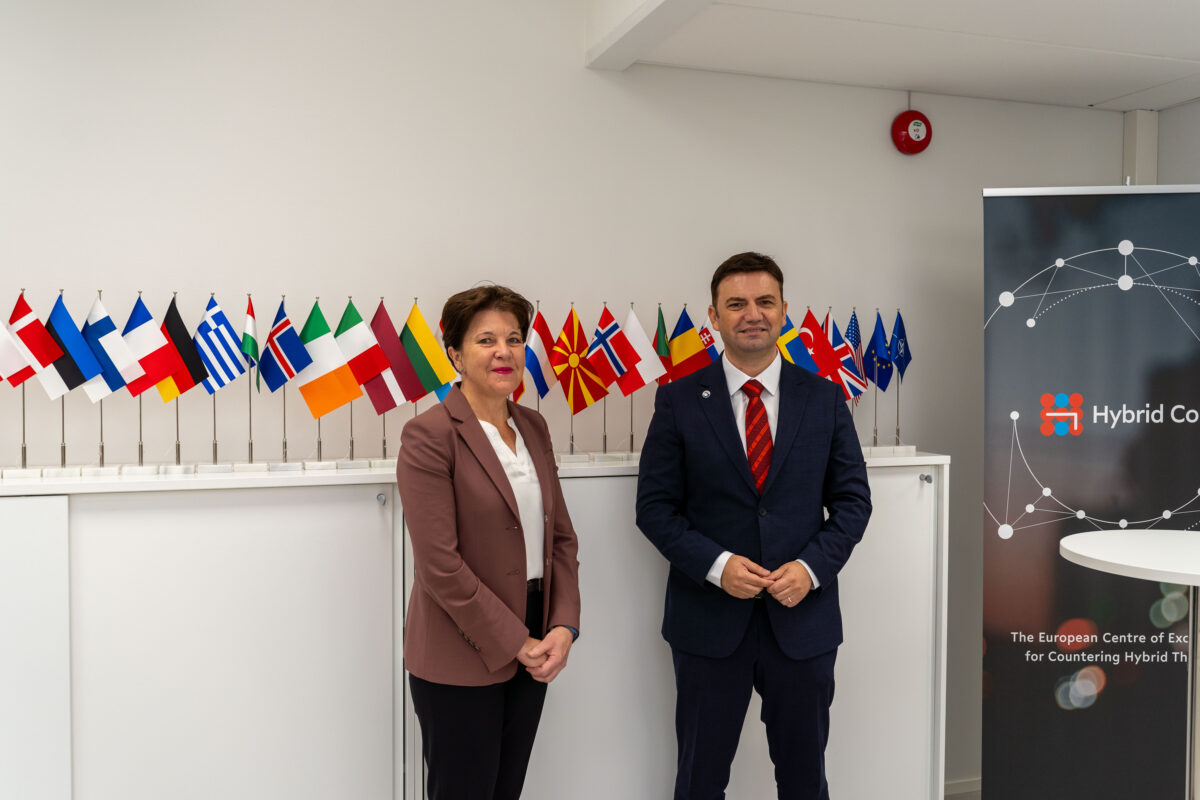On 27 October, the European Centre of Excellence for Countering Hybrid Threats had the pleasure of welcoming Mr Bujar Osmani, the Minister of Foreign Affairs of North Macedonia. Mr Osmani visited the Centre to hand over the Letter of Notification to Director Teija Tiilikainen, officially making North Macedonia the 35th Participating State of Hybrid CoE.
“Hybrid threats have become an ever more visible part of our security environment, and it’s with this in mind that I’m pleased to welcome North Macedonia to join the European Centre of Excellence for Countering Hybrid Threats,” Director Teija Tiilikainen stated. “With the accession of its 35th Participating State, the Centre is now even stronger when it comes to building capacity and expertise in support of democratic societies.”
“Hybrid threats pose an unprecedented challenge today, blurring the lines between conventional and unconventional warfare, transcending time and space, and demanding innovative strategies to safeguard national and international security,” said Mr Osmani.
“For North Macedonia, participation in Hybrid CoE represents a huge step towards strengthening national resilience and advancing collective efforts to counter these increasing challenges. We are honoured to join as the 35th country, and are eagerly looking forward to collaborating and sharing experiences with the other Participating States, the EU and NATO. Our aim is not only to make a valuable contribution to the activities of Hybrid CoE but also, through collective efforts and mutual support, to effectively address all security challenges within the complex and ever-evolving realm of hybrid threats,” Mr Osmani added.
In addition to North Macedonia, the Participating States of the Centre of Excellence include Austria, Belgium, Bulgaria, Canada, Croatia, Cyprus, the Czech Republic, Denmark, Estonia, Finland, France, Germany, Greece, Hungary, Iceland, Ireland, Italy, Latvia, Lithuania, Luxembourg, Malta, Montenegro, the Netherlands, Norway, Poland, Portugal, Romania, Slovakia, Slovenia, Spain, Sweden, Türkiye, the United Kingdom, and the United States. The Centre cooperates closely with the EU and NATO.



